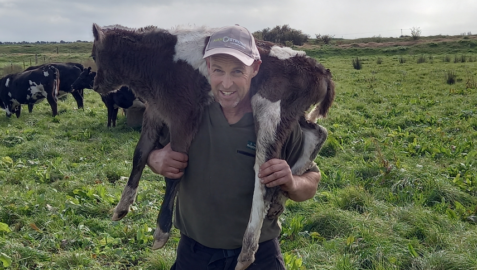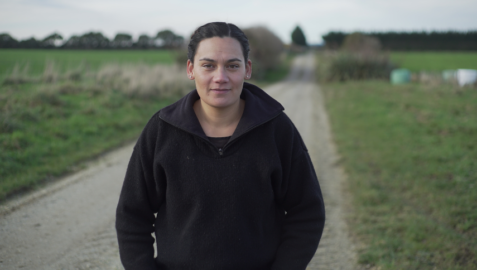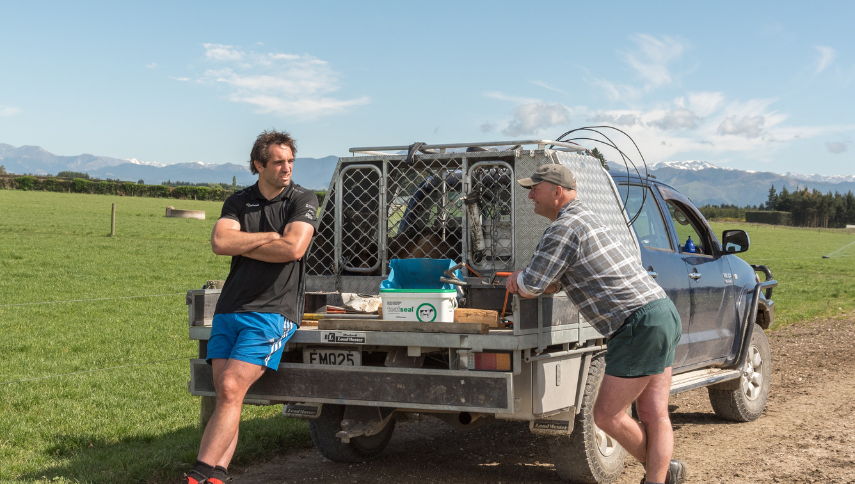
Keep It Social
Module Overview
With summer fast approaching, Farmstrong’s encouraging farmers to reconnect and schedule a decent catch up with mates and neighbours.
Farmstrong ambassador Sam Whitelock has spent his sporting career managing pressure on the rugby field and helping others do the same. He has helped Farmstrong create resources on how to have a listening conversation. “I know myself, whenever there’s been a challenging time, it’s nice to be able talk about it and share the load. Just listening can be a huge help to someone who is feeling ‘under the pump’,” he says.
Sam’s take on what makes a good listener is:
- Choose a good time to talk.
- Begin with a simple question like ‘how are you getting on?’
- Be comfortable with silence. Let the other person do the talking.
- Don’t jump in with your solution to the problem.
- Keep an open mind and be non-judgemental.
Let’s hear what farmers have to say about the value of a regular catch-up.
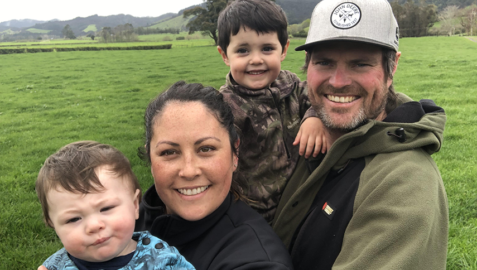
Paparimu farmers Amber and Fraser Carpenter manage three farms – one share milking 550 cows and two beef blocks stocking 450 units at peak. They also have two young kids, so life is plenty busy. Amber says regular catch-ups with her team and neighbours are an essential part of managing the ups and downs of farming.
“At challenging times like this, communication and connection are everything – people need people. Otherwise, it’s very easy to get stuck in the rut.”
“Farming can be isolating anyway. There are times during the season when you just don’t leave the property and sometimes it can feel like the world is closing in on you. That’s why you need to get off farm or get on the phone or Zoom and have those conversations. It’s mentally refreshing to talk to others and get things off your chest.”
“If you’re only having that conversation with yourself or your partner, life can get tunnel-visioned very quickly. When you catch up with others, you soon realise everyone’s experiencing the same thing, you’re not sailing the ship alone.”
“That’s why I think You Matter, Let’s Natter is great because sometimes farmers are reluctant to talk. The thing I’ve learnt is that any interaction can help if you’re going through tough times. Just chatting with someone means you don’t have to think about your problems for a while. You get that mental break from the farm.”
“If you keep every farming challenge inside your own head, life soon becomes overwhelming. That’s the stuff that wakes you up at three in the morning and no one working on a farm needs lack of sleep. That’s why it’s great to have a natter and get things off your chest.”
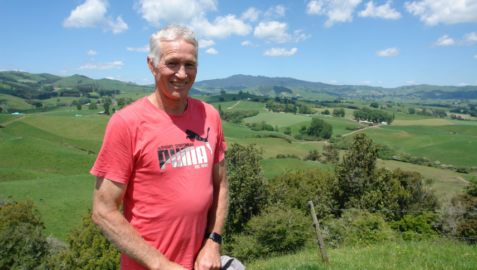
Cambridge dairy farmer Marc Gascoigne has also helped roll out Farmstrong’s You Matter, Let’s Natter initiative.
“A big part of keeping well on farm is connecting with your mates and checking in on people. The thing is to get in touch while things are going well, don’t wait until things get on top of people. That just leaves them a bigger hole to climb out of.”
“I reckon sharing listening skills with farmers is a good idea, because we all know people who don’t listen well and you can tell they’re not listening, they’re only trying to work out what they’re going to say next.”
“One thing I’m guilty of myself is jumping in and solving people’s problems, but people aren’t looking for that, they just need to offload about something that’s happened to them. They want to talk to someone who understands how farming works, is empathetic and good at listening rather trying to solve things for them.”
“I think it’s a good idea to wait until the end of a discussion to offer any suggestions. Make a few mental notes as you go and then wait until the person has completely finished talking. It’s about not offering too much, too soon. Sometimes we all need a reminder to just shut up and listen.”
“One of the best conversations I had was with someone who’d asked me to talk to a farming relative of theirs who was struggling. He told me they were so much better and thanked me for going to see them. That’s your reward for being a good listener. It’s a bloody good feeling knowing that you have helped someone. There’s no doubt that having a friendly ear turn to is much better than having none.”
Being Farmstrong
Let’s leave the last word to Sam Whitelock: “Being Farmstrong is actually about enjoying farming. That’s something a lot of people do when they first start farming but then the negative thoughts come in and some of the pressures get on top of them. That’s why it’s important to look after your own needs and spend time with family and friends. Surround yourself with a network of people you can reach out to. It can be as simple as firing up the barbie or getting together to watch a game of rugby or having a conversation in the pub. Whether you’re a farmer or a rugby player, staying connected with friends and community makes you much more resilient.”
To find out more about how to stay Farmstrong and brush up on your listening skills visit farmstrong.co.nz.

